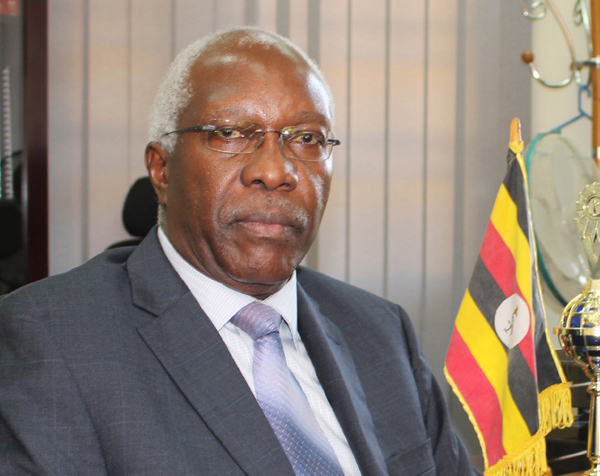Parliament has adopted the proposal to determine the retirement benefits of Uganda’s Auditor General, ensuring equitable provisions for the nation’s public servants.
The motion, brought forward by the Minister of State for Finance, Planning and Economic Development (General Duties), Hon. Henry Musasizi, and seconded by Hon. Amos Kankunda, the Rwampara County MP, aimed to address the post-retirement provisions outlined in Section 5 of the National Audit Act, 2008.
The motion underscored the importance of ensuring equitable treatment for the Auditor General, a key figure appointed to oversee the nation’s financial accountability.
In her preamble ahead of the debate on the motion, the Speaker of Parliament, Anita Among, stated whilst that the current Auditor General has been a distinguished officer who has worked diligently, the legislation is for all Auditor Generals to come.
“The current Auditor General has had an illustrious career spanning from 2001 to date. His tenure has witnessed the growth of external audit functions across government and It is only befitting that this Parliament pronounces itself on the reward that must go with all the Auditor Generals who will come,” she said.
Under the proposed resolution presented by Hon. Musasizi, retiring Auditors General would be entitled to a range of benefits, including a monthly retirement benefit equivalent to the salary of a sitting Auditor General, a furnished house or a one-off payment in lieu of accommodation, an annual medical allowance, and provisions for transportation, security, and funeral arrangements.
“Overall, investing in retirement benefits of the Auditor General is an investment in the effectiveness, integrity, and stability of the auditing function in government. It is on the basis of the above submission that I support the motion for a resolution of the Parliament of the Republic of Uganda stipulating the retirement benefits of the Auditor General of Uganda,” Musasizi said.
Hon. Kankunda, the seconder, stated that having served diligently for over 20 years, the current Auditor General is due for retirement but his post-retirement benefits have not been clearly delineated in the law.
During the deliberations, Hon. Joel Ssenyonyi, Leader of the Opposition, raised concerns about the need for a holistic approach to benefits allocation, urging Parliament to consider a formula that would apply uniformly to all public servants.
“Can we discuss a formula to award servants of this country? And not just an individual or individual office?” he asked.
Hon. Nathan Nandala-Mafabi (FDC, Budadiri County West) proposed a pay of 50,000 currency points equivalent to Shs1 billion for the good work that the Auditor General has done. Members, however, rejected Nandala-Mafabi’s proposal to call the package a ‘handshake’.
Hon. Musasizi, however, proposed that this be reduced to 25,000 currency points, which is Shs500 million.
Hon. Christine Kaaya (NUP, Kiboga District Woman Representative) proposed that Parliament should simply consider a percentage instead of an actual amount to consider inflation.
Responding to the call for structure, Hon. Jonathan Odur, proposed a framework to determine retirement benefits, emphasising the importance of a systematic approach in ensuring fairness and parity. He proposed that; a one-off lump sum retirement benefit is equivalent to 2.6 percent of the annual salary of the retiring Auditor General, multiplied by five and the years of service.
“I propose a percent of 80 percent it would do, because the Minister had come with 100 percent.” Odur said.
Echoing Odur’s sentiment, Hon. Nandala-Mafabi emphasised the need for equitable treatment, particularly citing the Auditor General’s oversight role over high-ranking officials such as the Chief Justice.
Hon. Musasizi lent his support to the proposed retirement benefit formula, emphasising the importance of a structured approach in meeting the needs of retiring Auditors General.
“I also agree with the proposal by Hon. Nandala-Mafabi of 100 percent, this is one person in the country,” he said.
With consensus reached on the proposed framework, the Speaker presided over the final vote, culminating in the unanimous adoption of the motion with the amendments.

